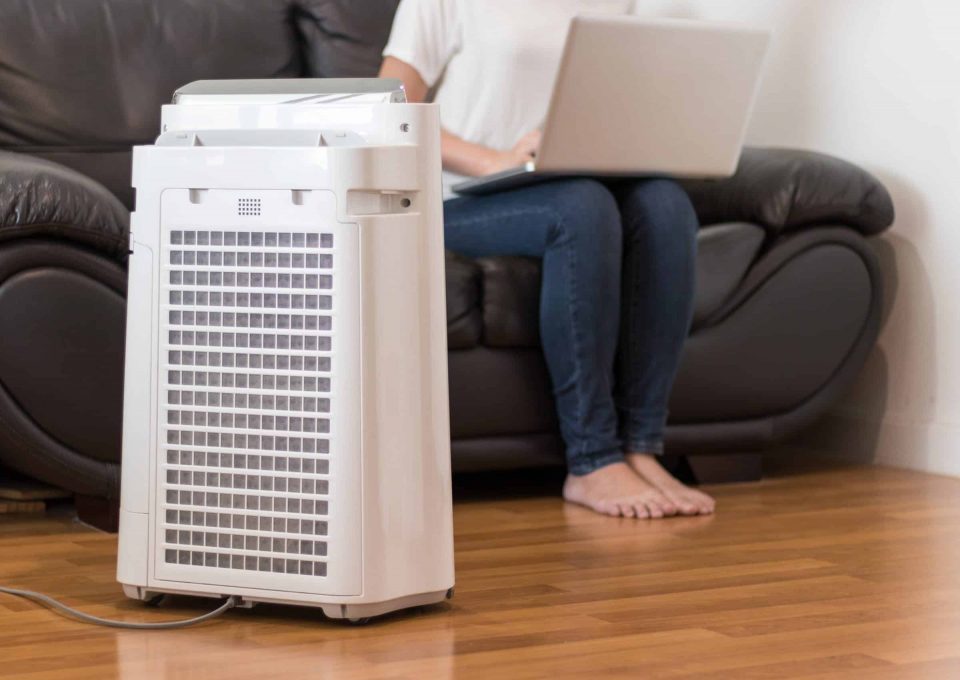More Fit for Your Furnace
January 16, 2012Avoid Geothermal Installation Pitfalls
January 23, 2012Read here to learn about the top 10 causes of dry skin — and what to do about it.
1) Winter weather: Dry skin is especially common in the winter months, when the humidity level outside drops. When Hilton Head air is cold and dry, the water in your skin evaporates more quickly; this makes your skin feel dry and tight, and makes it look flaky. In fact, your skin loses more than 25 percent of its ability to hold moisture in the winter. Windy weather (especially if you enjoy winter sports) can also beat down on your skin and make it look and feel dry and chapped.
The solution: Protect your skin by wearing protective clothing, gloves, and scarves to shield it from the elements. Be sure to apply a rich moisturizing lotion that contains ingredients like glycerin that help hold moisture in your skin, and pay special attention to your hands, feet, elbows, and knees.
2) Indoor heating: Many of us spend more time inside in the winter and use indoor heating. Dry indoor air not only dries out your skin, it also dries out your mucous membranes, leading to dry, chapped lips, dry noses (nosebleeds), and dry throat (hoarseness, sore throat).
The solution: Set your heater to the lowest setting that’s comfortable, and use a humidifier, especially at night. This will replace the moisture in the air that gets sucked out by dry indoor heat. The humidifier helps hydrate dry skin and soothes chapped lips, dry throat, and nasal passages. Your Hilton Head heating and air specialist can advise you as to the humidifier that will best suit your family’s needs.
3) Long hot showers and baths: A long hot bath or shower may sound great after being out in the cold, but the combination of hot water and soaking can strip your skin of its protective oils and leave you looking like an alligator.
The solution: Try to shower or bathe in warm, not hot water, and limit showers and baths to 10 minutes, just enough to clean the dirty bits. Pat dry — don’t rub — with a soft towel.
4) Not using body lotion: It might be tempting to skip the body lotion when your skin is covered up in winter clothing, but it’s just as important to moisturize in the winter as it is in the summer, even if your arms and legs aren’t on display. Dry skin can get itchy, flaky, and uncomfortable if you don’t use the right lotion.
The solution: Apply a rich body lotion immediately after showering to lock in moisture. Apply again before going outside and before going to bed. Look for ingredients like glycerin, which holds moisture in your skin and fights dehydration.
5) Frequent hand washing: Dry, chapped hands are often caused by frequent hand washing, as well as the use of hand sanitizers, which often have a high concentration of alcohol. Although it’s important to keep your hands clean to avoid spreading germs, the exposure to soap and water and alcohol can strip your skin of its natural oils, leading to chapped hands, splits, and cracks that can bleed or even get infected.
The solution: Carry your own moisturizing liquid hand soap. (The soap in public restrooms is often very harsh and drying.) Rub on a rich hand cream after each washing or after using hand sanitizer, and cover moisturized hands with gloves at bedtime. When gardening, doing dishes, or working around your Hilton Head home, wear protective gloves.
6) Harsh bar soaps: Many bar soaps, especially deodorant soaps, contain detergents that remove your skin’s natural oils, leaving it dry and more sensitive.
The solution: Switch to a moisturizing, fragrance-free body wash that leaves your skin soft, not stripped. Save the bar soap for your feet and armpits.
7) Being dehydrated: You might not be as thirsty in the winter as you are in the summer months when you’re hot and sweaty. However, you lose water through your skin every day, in any season — even when it’s cold and even if you don’t feel like you’re sweating. This is especially true if you spend a lot of time in dry indoor heat. Our bodies are made of 70 percent water, which keeps our cells plump and healthy. If you’re not drinking enough, your body (and your skin) gets dehydrated, which can make you look and feel shriveled.
The solution: Make sure you’re getting plenty of fluids in the wintertime, even if you don’t feel thirsty. Avoid caffeinated drinks, which will make you lose even more water. Instead, stick to water, soup, decaf coffee and tea, and herbal tea.
8) Not eating the right foods: Your skin cells are wrapped in a protective bubble of lipids (fats) that help keep them soft, plump, and flexible. If you don’t eat enough fatty acids in your diet, your body won’t have enough building blocks to maintain this protective wrap.
The solution: Eating foods that contain “good fats” (especially omega-3 fatty acids) can help replenish your skin’s natural fats and keep it looking smooth and supple. Make sure to include plenty of omega-3-rich foods in your diet, including oily fish (such as salmon, sardines, and mackerel). If you’re allergic or can’t stand the taste of fish, try incorporating tofu, walnuts, flaxseeds, soybeans, or omega-3-fortified foods (like orange juice) into your diet every day. In addition, some people with dry skin and itchy rashes can benefit from evening primrose oil supplements.
9) Wearing the wrong clothing: Scratchy fibers like wool can aggravate dry skin, especially for those who have sensitive skin or eczema rashes. In fact, if you look under the microscope, these fibers look like little pieces of steel wool that can irritate your skin, leaving it itchy and irritated.
The solution: Wear cotton, silk, or other soft, smooth fabrics next to your skin to protect it from wool fibers. These natural fibers help your skin “breathe” and wick away sweat. If you must wear a wool sweater, layer a soft cotton T-shirt or turtleneck underneath. This way you can also peel off the sweater if it gets warm indoors, so you don’t overheat and sweat.
10) Licking your lips: Frequent lip licking may feel good temporarily, but eventually it dries out your lips as the saliva evaporates. In addition, using matte or long-wearing lipsticks can also leave your lips dry, chapped, and cracked.
The solution: Look for a rich lip ointment or lip butter in a pot, which is more emollient than a waxy lip balm stick. Apply under lipstick, throughout the day, and before bedtime to protect against dry indoor heat. This will also remind you not to lick your lips! If you wear lip color, switch to a gloss or creamy lipstick, and avoid plumping lip glosses which contain irritating ingredients that can make them drier.
Article Source: http://www.everydayhealth.com/health-report/dry-skin-relief/dr-wu-causes-of-dry-skin.aspx






